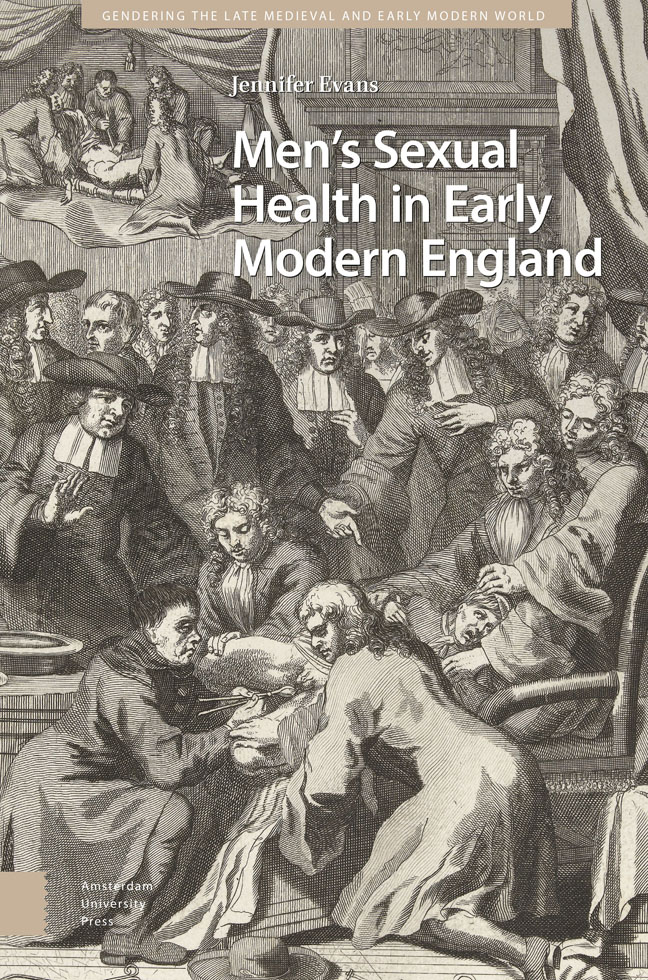4 - Embarrassment and Reticence
Published online by Cambridge University Press: 20 February 2024
Summary
Abstract: Chapter Four considers the extent to which disorders affecting the genitals and reproductive organs caused embarrassment and shame. It demonstrates that medical literature described men as being embarrassed but configured this as a specific component of the relationship between medic and patient, whom they avoided in favour of domestic solutions, irregulars, and quacks. To counter this, practitioners mingled shame and embarrassment with negligence, emphasizing that a failure to seek appropriate medical help exacerbated symptoms and further threatened the reproductive organs. Moreover, they made strategic use of anonymity in their observations to accentuate their own abilities to be discreet during treatment. Practitioners played upon men's concerns about the embarrassing nature of these disorders to gain paying clients.
Keywords: shame; anonymity; patient-practitioner relationship; bodily neglect
Readers familiar with medical texts understood that genitourinary ailments placed the body in a precarious position. For younger boys there was the potential for future manliness, vigour, and virility to be undermined; for the elderly their bodies were threatened with incontinence, and all adult men faced the prospect of being rendered infertile or impotent. The body could be weakened, disrupted, and disordered. Both medical texts and popular and ephemeral literature framed impotence, infertility, hernias, and venereal disease as inherently embarrassing. However, this embarrassment sat alongside a medical and social culture that fostered discussion on health, shared remedies about fundamentally intimate conditions, and required the presence of friends and family in the sickroom. The cultural spectre of these conditions therefore influenced but did not dictate men's lived experience.
Men, as testified through correspondence, recipe collections, and medical observations discussed their problems and ailments with friends and family; they sought medical information, remedies, and referrals from their peers. Diaries likewise imply that men were uninhibited in their discussions of genitourinary complaints. Although men were presented in observations and case notes as delaying treatment because of embarrassment, shame and disconcertment were not absolute barriers to seeking medical aid. Men's experiences thus mirrored women’s, whose access to medical care was theoretically bounded by notions of modesty but whose modesty did not prevent them seeking treatment from practitioners of the opposite sex. While men were reticent, they sought medical attention when necessary. Medical texts operated in a controversial way in relation to men's embarrassment.
- Type
- Chapter
- Information
- Men's Sexual Health in Early Modern England , pp. 121 - 146Publisher: Amsterdam University PressPrint publication year: 2023



